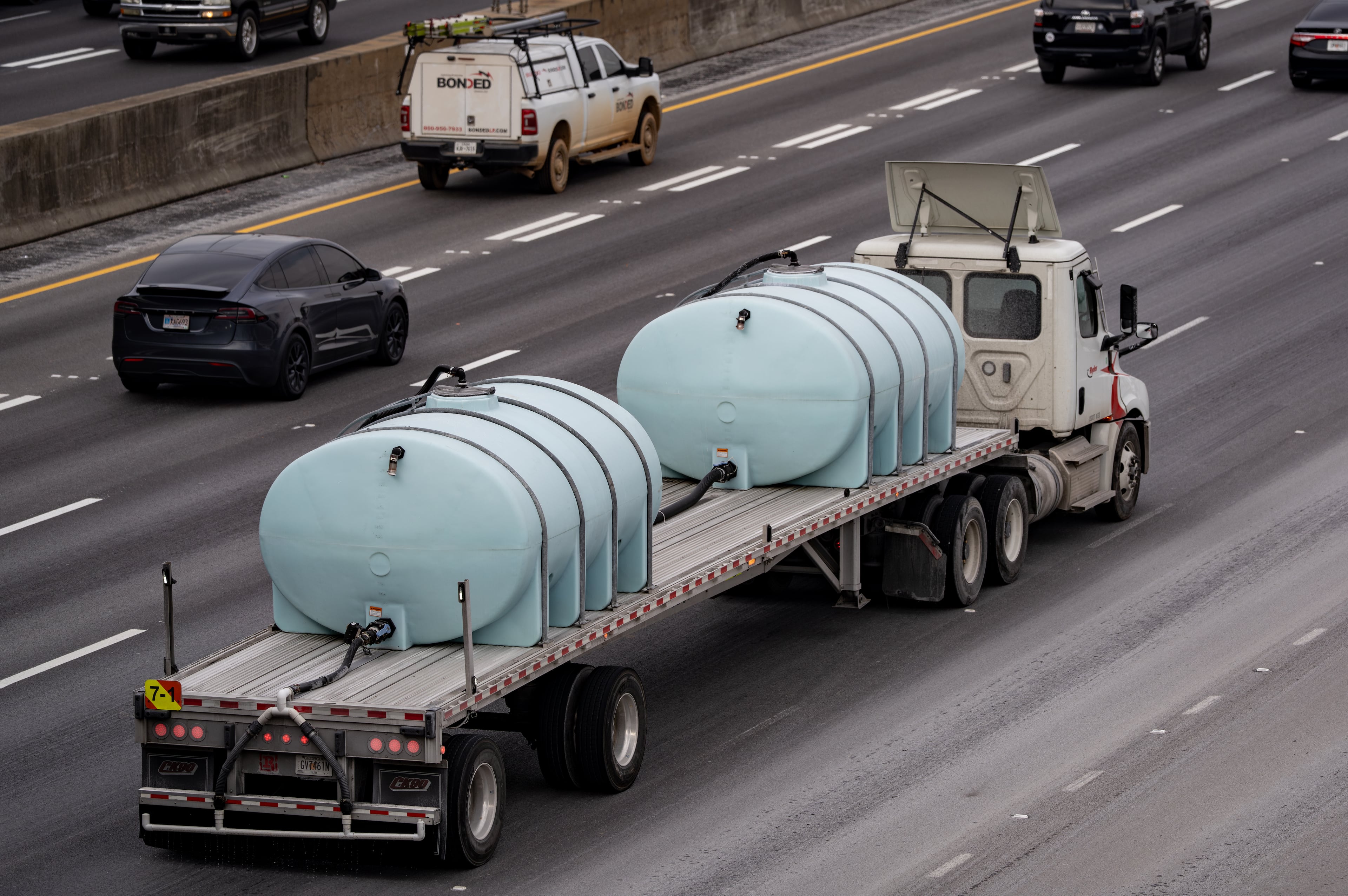Jury awards $140M over apartment fire at troubled Atlanta complex

The blaze sent residents of a southwest Atlanta apartment complex jumping out of windows on a dark and frigid morning, or running out their doors with only the clothes on their backs.
By the time the smoke cleared March 15, 2017, more than 30 residents, including children, were left without a home, and tenant George Hughes, 63, was dead. Investigators said he appeared to be trying to escape the flames, court records state.
Now, a DeKalb County state court jury has decided that the landlord of Venetian Hills must pay Hughes’ family $140 million in his death, just as a push to curb large jury awards and what critics call “frivolous” lawsuits promises to simmer in the Georgia General Assembly for years to come. On Wednesday, Gov. Brian Kemp pledged to make what advocates call “tort reform” a multi-year initiative, even as he scuttled plans to make it a top priority during the 2024 legislative session.
At Venetian Hills, years of complaints about crime and substandard conditions failed to get its owners to clean up the complex, city code enforcement and police records show. To make more money, its owner turned Hughes’ apartment into a boarding house without required fire sprinklers, alarms and other safety equipment, according to evidence presented in the court case.
Our Reporting
The Atlanta Journal-Constitution began publishing its Dangerous Dwellings series in June 2022, exposing how out-of-town private equity firms and other investors turn a profit from Georgia’s weak statewide tenant protections and gaps in local enforcement. This business model forces tens of thousands of metro Atlantans to live amongst violence and substandard conditions.
A team of AJC reporters has covered this story for more than two years. They examined thousands of public records, conducted scores of interviews, made dozens of site visits, shadowed tenants, and attended court hearings. The series spurred changes to local ordinances in several metro Atlanta jurisdictions, led to a bipartisan proposal to boost statewide tenant protections, and won several national journalism awards.
Read the series at ajc.com/dwellings
Hughes’ death shows that it’s crucial for those harmed by dangerous conditions to have the right to hold the responsible parties accountable in court, said attorney Jeff Shiver. He won the Dec. 20 verdict on behalf of the victim’s surviving sister.
“The evidence was he basically burned to death and died of smoke inhalation,” Shiver said. “These civil claims, they’re one of the only mechanisms that have real teeth to make sure that these property owners and landlords…provide a safe place to live.”
Venetian Hills’ attorney Bryan Grantham declined comment. During the trial, the complex blamed Hughes’ death on a visitor who pleaded guilty to manslaughter and arson charges for starting the fire, not the lack of fire safety equipment, court records show. Investigators said she set the fire after a fight with her boyfriend, who lived there.
Venetian Hills was one of more than 270 apartments named in The Atlanta Journal-Constitution’s Dangerous Dwellings investigation for having persistently dangerous conditions. The investigation found that Georgia has among the nation’s weakest tenant protection laws, with no minimum state standards requiring that owners keep their properties safe, decent or habitable. Code enforcement records list 150 complaints at Venetian Hills since 2017, including those about broken windows, damaged doors, a collapsed ceiling, leaks, roaches and rats.
Police reported 87 crimes at this address from 2017 through April 2023, including 23 aggravated assaults, nine robberies and a rape.
In January 2023, the city of Atlanta added the complex to its list of those to be targeted for chronic crime or condition problems.
Whether Marie Hughes, the fire victim’s sister, will receive any of the $140 million award is far from certain. The Richmond, Va.-based owner of Kinsale Insurance Company, Venetian Hills’ insurer, said in a recent Securities and Exchange Commission filing that it plans to appeal the verdict.
In these types of cases, large verdicts can be cut to a fraction of their original size through years of legal wrangling, said Mel Hewitt, a longtime premises liability lawyer who often represents victims of crime.
“It may not be the best system, but it’s what we’ve got,” Hewitt said, “And it’s the only way to bring things like this to the attention of landowners and property management people. They’ve got to keep their property safe.”
An ongoing suit Kinsale filed in federal court in Atlanta argues that Venetian Hills’ insurance policy did not cover Hughes’ death and it does not have to pay out any money at all.
It may take years to resolve, Shiver said.



